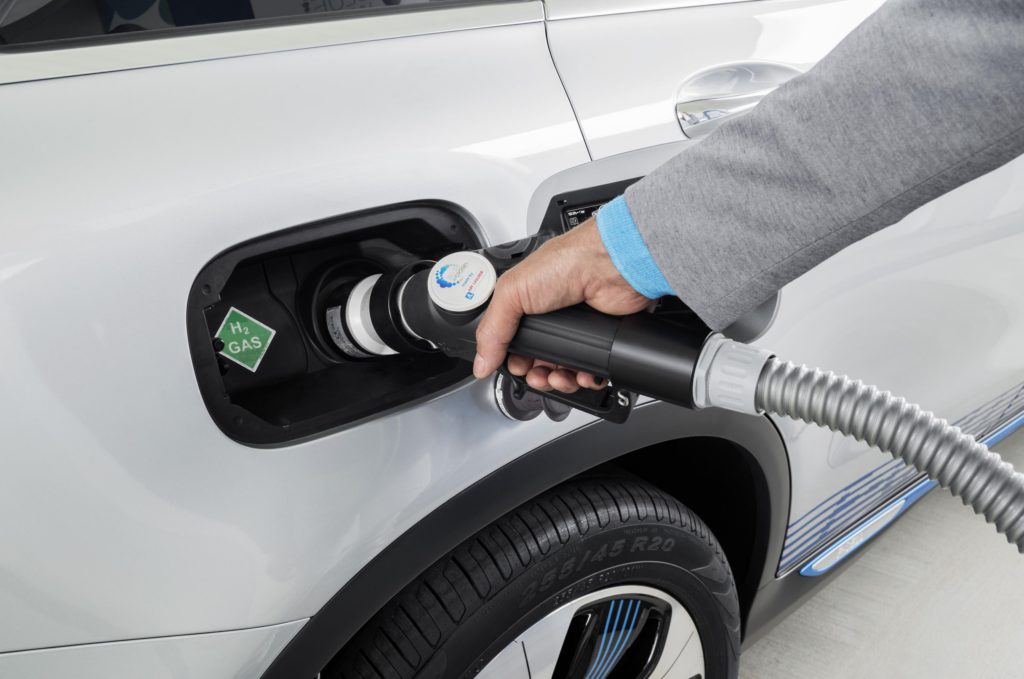Joint venture to push hydrogen development for logistics
22 April 2020

22 April 2020
Volvo Group and Daimler Truck AG have signed a preliminary non-binding agreement to establish a new joint venture, which will help develop hydrogen for the commercial vehicle industry.
The intention of the agreement is for Daimler to consolidate all its fuel-cell activities in the joint venture. At the same time, Volvo will acquire 50% of the new business for approximately €600 million on a cash and debt-free basis – giving it access to the work the German business has already carried out.
With the European Green Deal looking to create sustainable transport and carbon-neutrality by 2050, the need to develop new fuel sources is more important than ever. Hydrogen provides an average passenger-car with a range of around 300 miles and a fuel-stop equivalent to that of petrol and diesel. The only output of any fuel-cell vehicle is a mixture of hydrogen and oxygen – commonly known as water.
Logistics logic
There are benefits for hydrogen deployment in the passenger-car market, with Toyota and Hyundai leading the way in this development. However, its research path is behind that of battery-electric technology, meaning the need for emissions reduction is pushing carmakers down this path instead.
With the logistics sector reliant on time-critical deliveries, taking commercial vehicles off the road for a long period to fully recharge, or making numerous stops for a short-charge, is not viable. Therefore, hydrogen may thrive in this area before becoming mainstream in the passenger-car market.
′Truly CO2-neutral transport can be accomplished through electric drive trains with energy coming either from batteries or by converting hydrogen into electricity,’ says Martin Daum, chairman of Daimler Truck. ′For trucks to cope with heavy loads and long distances, fuel cells are one important answer and a technology where Daimler has built up significant expertise through its Mercedes-Benz fuel-cell unit over the last two decades.’
′Combining the Volvo Group and Daimler’s experience in this area to accelerate the rate of development is good both for our customers and for society as a whole,’ adds Martin Lundstedt, Volvo Group president and CEO. ′By forming this joint venture, we are clearly showing that we believe in hydrogen fuel cells for commercial vehicles. But for this vision to become a reality, other companies and institutions also need to support and contribute to this development, not least to establish the fuel infrastructure needed.’
Cost benefits
The Volvo Group and Daimler Truck will be 50/50 partners in the joint venture, which will operate as an independent and autonomous entity, with the two companies continuing to be competitors in all other areas of business.
Joining forces will decrease development costs for both companies and accelerate the market introduction of fuel-cell systems in products used for heavy-duty transport and demanding long-haul applications. In the context of the current economic downturn, cooperation has become even more necessary in order to meet the Green Deal objectives within a feasible time frame.
The common goal is for both companies to offer heavy-duty vehicles with fuel cells for demanding long-haul applications in series production in the second half of the decade. In addition, other automotive and non-automotive use cases are also part of the new joint venture’s scope.
The signed preliminary agreement is non-binding. A final agreement is expected by Q3 2020, with the deal closing before the end of the year.